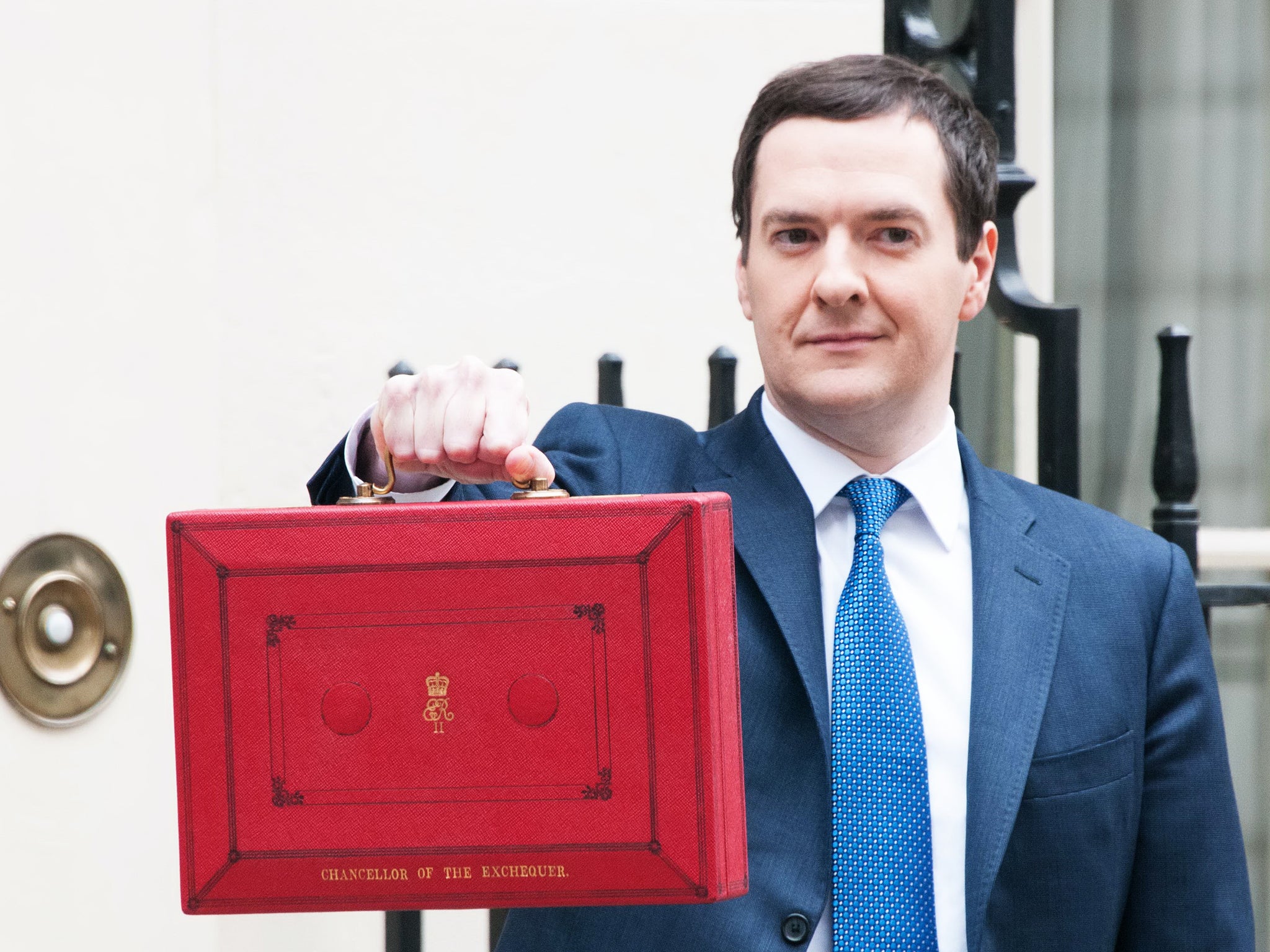Did George Osborne lay a trap for Labour – or a booby trap for himself?
Outlook: He’s promised £8bn a year of income tax cuts in the form of a higher personal allowances and an increased higher-rate threshold

When the Chancellor unveiled his much vaunted fiscal charter, it was widely seen as a trap for Labour. If (as happened) the opposition party voted against a law demanding an overall budget surplus by 2019-20 it could be portrayed as fiscally louche and irresponsible.
Unfortunately it’s now looking not so much a problem for Labour as it is for its architect in No 11 Downing Street.
The non-partisan Institute for Fiscal Studies (IFS) has warned that weaker than expected growth or over-optimistic forecasts for tax revenues could make it extremely difficult for George Osborne to obey his law without taking some potentially very painful steps.
Given that the Bank of England has recently downgraded its growth forecasts and the Chancellor has himself warned of a “cocktail of economic risks” facing Britain, it’s easy enough to see growth being weaker than expected.
As for those tax revenues? A slowing economy won’t help them, nor will sluggish growth in wages. Government forecasts for tax revenues have a nasty habit of being rather more optimistic than they ought to be at the best of times. These are not the best of times.
Which puts Mr Osborne in a difficult spot. And it gets worse. He’s promised £8bn a year of income tax cuts in the form of a higher personal allowances and an increased higher-rate threshold. Unfortunately, these promises are currently unfunded.
Delivering them will therefore require taxes to rise elsewhere or spending to be cut – and considerably.
Perhaps there is a get-out. The legislation not only demands a surplus in 2019-20, it calls for one in every year thereafter, but with the caveat “in normal times”.
Could Mr Osborne be prepared to offer an argument that we are no longer in “normal times”? There are, of course, the ructions in China, and the collapse in the oil price, not to mention the self-inflicted wound of an EU referendum that could lead to the UK heading out and enduring some deeply unpleasant economic consequences as a result. It’s not exactly a get-out-of-jail-free card (but the legislation handily doesn’t call for the Chancellor to be imprisoned) and will likely require some fancy footwork to pull off, but that footwork might prove to be very necessary.
If the IFS is to be believed, Mr Osborne might have created as big a trap for himself as he ever did for Labour.
All’s not fair in the world of banking
“I feel your pain” is presumably the message Credit Suisse chief executive Tidjane Thiam wants to get across to the thousands of staff reaping the whirlwind of the bank’s latest troubles, by volunteering to cut his bonus.
It is quite a whirlwind. Thousands of jobs will be axed in the wake of the business reporting a loss of Sfr2.94bn (£2.06bn) for 2015, the first time it has dipped into the red in eight years.
To demonstrate his empathy with those who will pay for the mismanagement and misbehaviour that brought that about, Mr Thiam has asked for between 25 and 50 per cent less. What we don’t know is exactly how much less, nor how the exact level of sacrifice will be decided. It also isn’t entirely clear which bonus scheme will be affected. As with most financial institutions, Credit Suisse has a number of them.
There is an annual cash award, together with various share schemes and payments in contingent capital, too, linked to various financial and non-financial targets. The latter schemes tend to make up the biggest part of the modern executive’s pay package. I’d be willing to bet it’s the former that will ultimately take the cut.
To be fair, that mismanagement and misbehaviour I mentioned can’t exactly be laid at Mr Thiam’s door, given that he’s only been in the job a few months.
Still, I’m not sure that an already very wealthy executive agreeing to take a bit off the top of his enormous package will come as much comfort to those contemplating life without any salary in the wake of the coming job cuts .
As for those who remain? Unless they’re shockingly naive they will see this for what it is: a largely empty gesture.
They will be well aware that if, in future, Mr Thiam needs to trot out some fresh cost-cutting to keep the shareholders sweet and those share-based bonuses flowing, they’ll be out on their ears. Mr Thiam has talked about showing “solidarity” but there isn’t any solidarity to be had in modern banking.
The profit warning that led Sir Hossein to switch off
Staying was always going to be a fantasy for Imagination Technologies boss Sir Hossein Yassaie, who has stepped down in the wake of a nasty profit warning.
Once a star in the rather limited constellation of British technology outfits, the company he is departing is set to make a loss this year. With its core business developing and licensing graphics chips for smartphones and tablets, among other things, it has been hit by the sector’s slowdown.
One consequence of its struggles is that its digital radio brand, Pure, never an entirely comfortable fit, is on the auctioneer’s block. Some of the latter’s retro designs are supposed to look as if they date from the era of transistors. Which is, sadly, where the British tech industry finds itself when compared to too many of its competitors.
Join our commenting forum
Join thought-provoking conversations, follow other Independent readers and see their replies
Comments
Bookmark popover
Removed from bookmarks